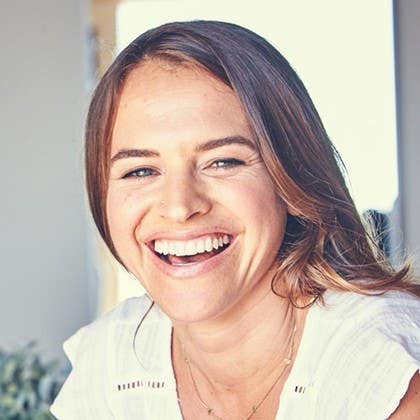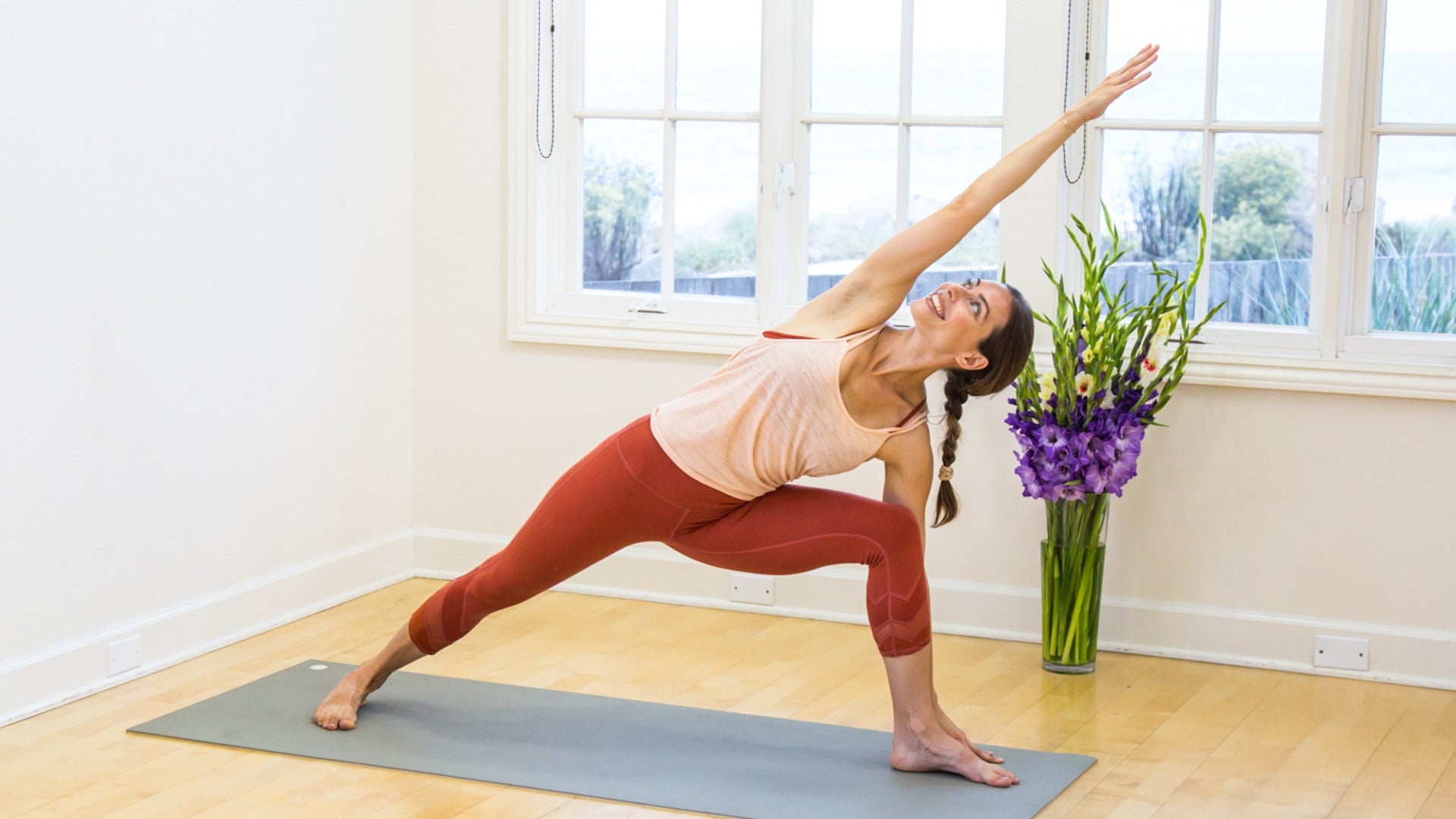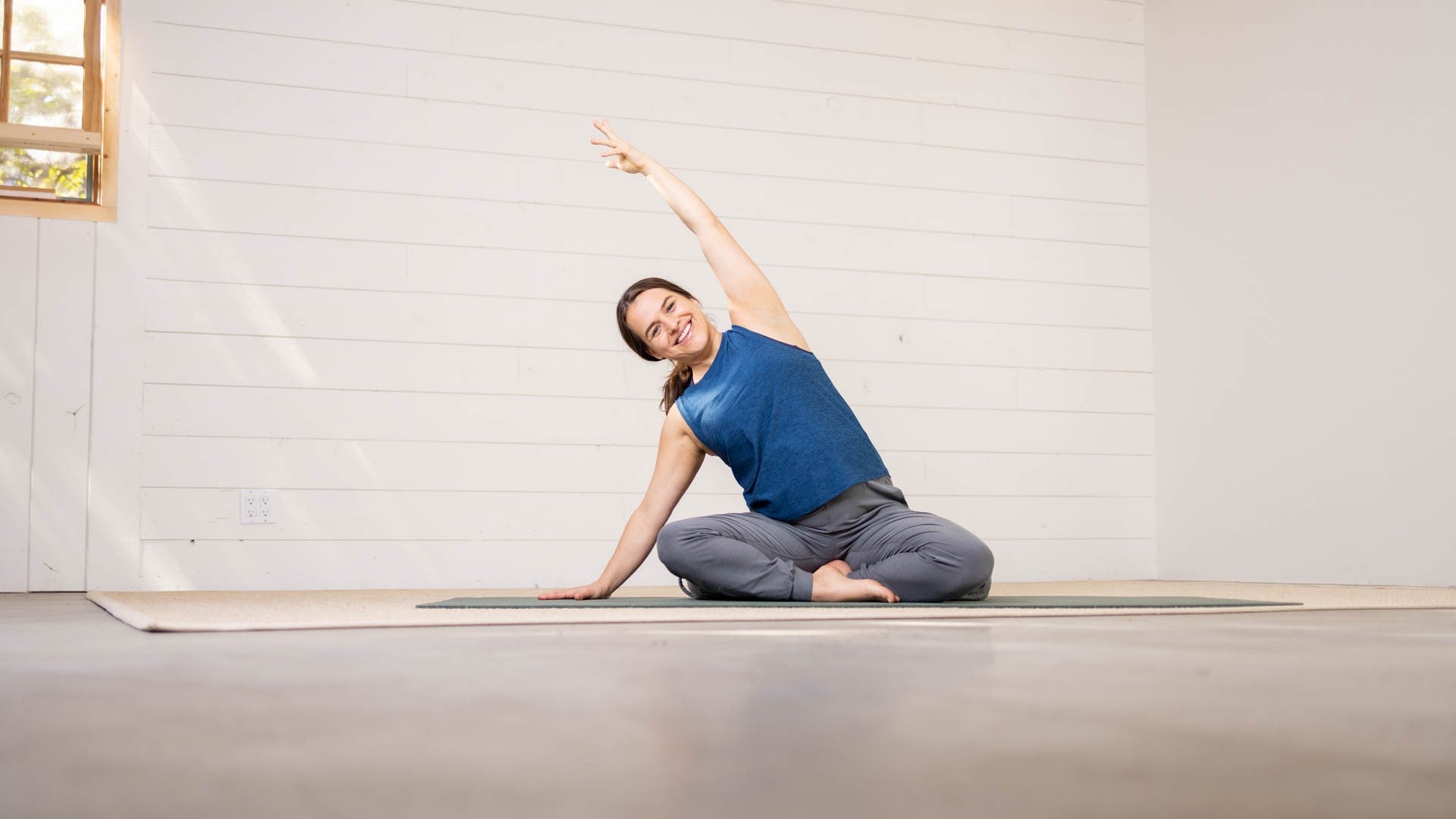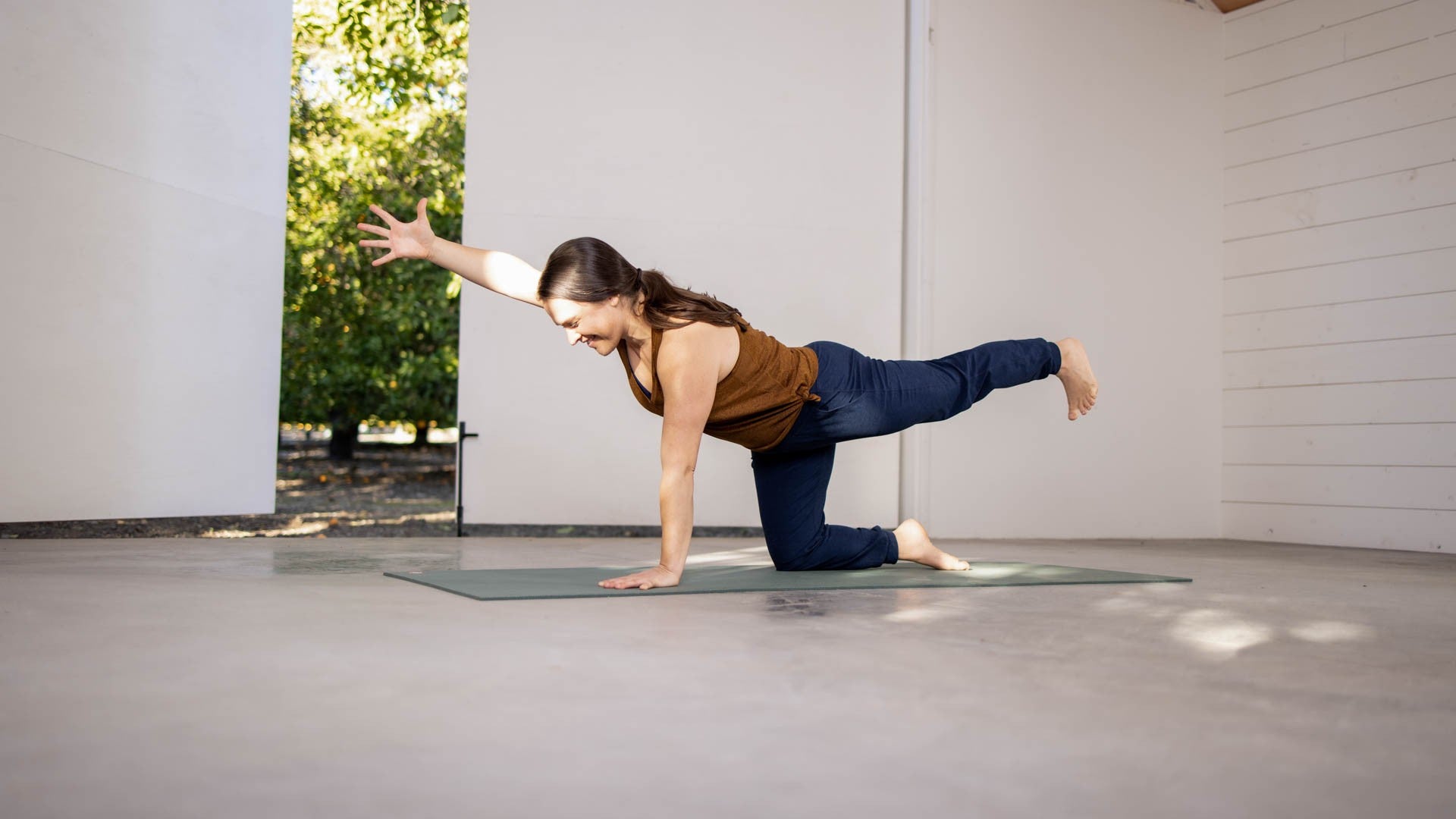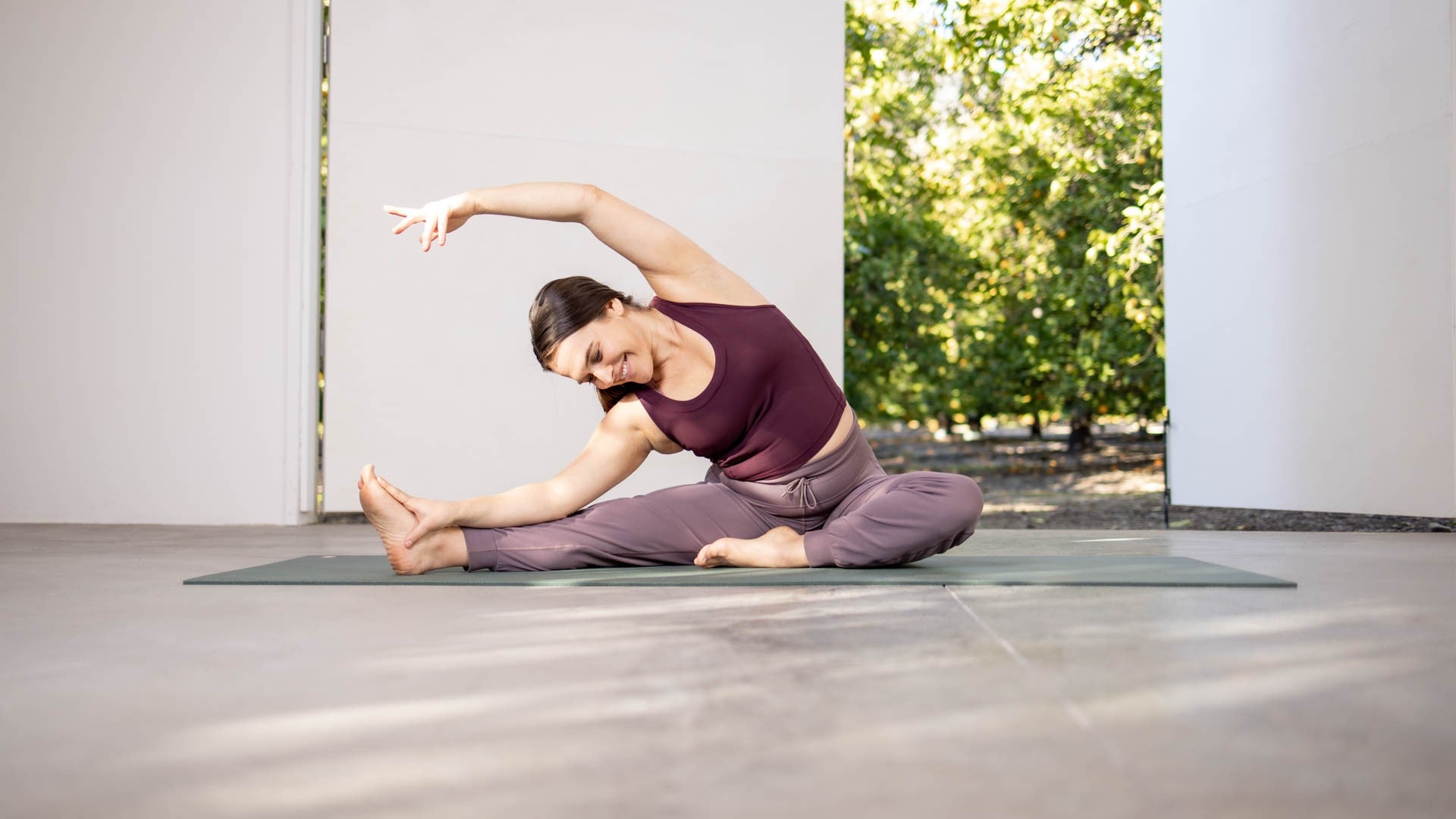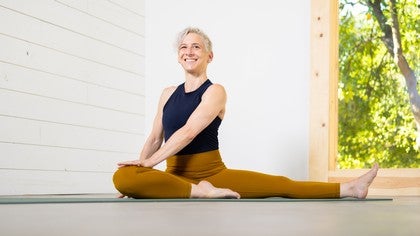
Yoga and Postpartum Mental Health
There’s a reason why most people don’t talk about postpartum depression and anxiety. As a brand new Mom, I was too exhausted, isolated, and in the thick of survival mode to even recognize myself, let alone have perspective on my mental and emotional state of being. It’s like trying to navigate a ship in the dense thick fog, and all you can see are your hands (and baby) directly in front of you.
I consider myself a pretty stable, steady, and grounded person, but my initiation into Motherhood was a complete tidal wave that knocked me off my center, leaving me weak, highly sensitive, deeply vulnerable, and anxious for a good few months after giving birth. There’s an old saying, "You have a plan and God laughs." Well, I had a birth plan and it was thrown to the wind. After 72 hours of intense laboring at home, pacing around my birthing tub and wailing with every contraction, we made a decision with our midwife to go to the hospital.
At the time, it wasn’t an emergency. We showed up on the evening of the Super Bowl and within an hour, I was in active labor. To make an epic story short, at sunrise on Valentine’s Day, after heroically pushing our son out of the womb like a mythological goddess, he was whisked away to the Neonatal Intensive Care Unit (NICU) for immediate care. Meanwhile, I was a complete shipwreck of emotions, treading water in the deep, dark underworld of trauma and almost drowning in waves of anxiety. Navigating postpartum is hard enough with a straightforward and healthy birth, let alone one that presents challenges with an unknown outcome.
Fast forward 10 days later, we are finally home with our healthy, precious baby-bear-warrior, who made a remarkable recovery with the help of an incredible medical team. Now what?! Now the postpartum journey continues: sleepless nights, wild fluctuations in hormones, nursing and pumping around the clock, meeting with lactation consultants, that one emergency trip to the ER (just to name a few), all while caring for an infant and healing from the physical trauma of giving birth (hello, pelvic floor, is anyone home?). For most new Mothers, this occurs in the privacy of one’s home, where Mama and baby are "nesting" and isolated from the world. It’s kind of like being in a cocoon or time capsule, then reemerging months later, confused, thirsty, sore, and still tired.
Postpartum depression is a sneaky thing. I remember feeling this deep sense of anxiety creep up throughout the day. It would arise in the early mornings, when my husband was preparing to leave for work and I was faced with caring for this little stranger (soon to be best friend) all day alone. I noticed a pattern of feeling extremely anxious just before sundown, in anticipation of another night of interrupted sleep, random diaper changes, and countless night feedings. Anxiety and grief would suddenly arise deep from within my womb, and for no apparent reason. Perhaps it was a subconscious fear of not being a good enough Mom or the habitual worry that my baby wasn’t getting enough milk. It’s true, I was obsessed with the input and output, counting the number of feeds and dirty diapers on my fingers. My body felt strangely numb and broken. I felt sad and lonely some days, all while holding my beautiful helpless baby, wondering when life would feel "normal" again.
Regardless of one’s birth story, postpartum depression and anxiety exists on a spectrum and can affect anyone and everyone. There’s not an "on and off" switch. Postpartum Depression (PPD) is an umbrella term that includes anxiety, and is the most common complication of childbirth. According to the Center for Disease Control (CDC), about 1 in 8 people who give birth suffer from postpartum depression. While it’s common to experience "baby blues" after giving birth, there are situations where medical support and treatment are needed and absolutely essential. Some of the symptoms of PPD include: major fluctuations in mood, crying more than usual, withdrawing from loved ones, trouble sleeping, feeling numb or disconnected from your baby, feeling guilty about not being a good Mom, or doubting your ability to care for your baby. All that said, no one should have to navigate the postpartum journey alone. It’s too much. I soon learned that asking for help is an act of clarity and strength, not a weakness.
In the darkest, most desperate hours, I found myself reaching for every practical yoga tool and technique in my bag. Here are 3 Simple Yoga Practices that helped me on my postpartum journey.
Center
Find a comfortable position. It might be seated on your couch, glider, in bed, or in a chair in the sun (preferably while holding your favorite warm drink). Pause. Bring one hand to your heart and one hand to your belly. Notice the simple rise and fall of your breath for one full minute, as you soften your face, jaw, shoulders, and hands. Feel your breath slow down and smooth out. Allow yourself to be as relaxed as you can be.
Ground
Feel your bare feet, outside on the earth. Lift and spread your toes, then relax and let the bottoms of your feet open and receive the support of the earth. Bring your hands to your belly. Allow for an inhale, then exhale all the way down to your toes. Visualize yourself releasing and letting go of any emotional tension. If it feels good, allow for a big sigh as you let out a sound.
Rest
Find a Supported Child’s Pose and/or Savasana. Be as comfortable as you can be. As you inhale, gently feel your lungs receive air. As you exhale, empty your lungs and soften your belly. Bring your awareness towards the natural flow of your breath. With each exhale, soften something. Allow yourself to be held.
Now, 15 months into the swing of Mamahood, I mourn for myself and those painful early months. I also quietly celebrate how far I’ve come - my stamina, and capacity for love and healing. It’s been said by the sages, "All spiritual growth takes place in the dark fertile soil." After reemerging from the underworld, the fog has cleared and my ability to see and feel is more vibrant than ever. I’ll admit, a lot of that has to do with being a seasoned Mom and sleeping through the night again. Yet something has changed. I’ve discovered a new found inner strength, courage, and resilience.
Comments

You need to be a subscriber to post a comment.
Please Log In or Create an Account to start your free trial.
